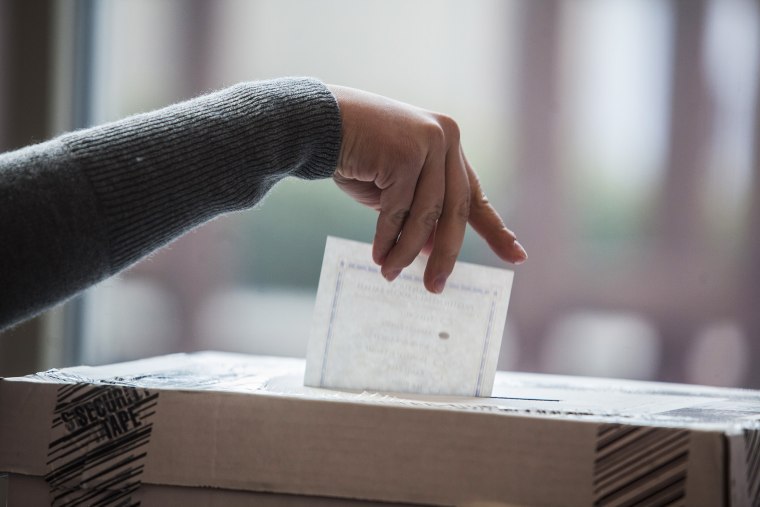MSNBC's Jacob Soboroff posted a fascinating video this week of his interactions with college students in southern California, which is home to several key congressional races that may very well dictate political power for the next two years. By and large, Soboroff found a group of young people who seemed largely indifferent toward the elections.
When he asked one young woman whether she intended to vote, she replied, "I should. We're, like, the most unreliable voter demographic, so I should vote."
Obviously, it'd be a mistake to draw sweeping conclusions from one journalist's interactions in one area, but we can draw meaningful conclusions from independent research data.
A new PRRI/The Atlantic survey on civic engagement finds stark gaps within different age groups' attitudes toward the utility of voting and other methods of civic engagement. The survey shows little evidence that younger Americans will turn out at historic rates in the upcoming midterms.Just 35 percent of young Americans (ages 18-29), compared to 81 percent of seniors (ages 65+) and 55 percent of all Americans, say they are absolutely certain to vote in the November elections.
This is roughly consistent with a recent report from Gallup, which found 82% of voters over the age of 65 saying they're certain to vote in this year's midterms. For voters under 30, it was 26%.
Around the same time, an NBC News/Wall Street Journal poll found that young voters were the single worst demographic in the nation for interest in this year's elections.
The more young adults don't bother to show up, the more significant the consequences.
This is, of course, a dream scenario for Republicans: since young voters tend to be the most progressive, their passivity and indifference towards the elections will give far-right candidates a boost.
It also sends a powerful signal to candidates -- now and in the coming years -- that they shouldn't bother targeting young voters or emphasizing issues of importance to Americans under 30 since most of these voters won't bother to cast a ballot. Campaigns have limited time and resources, which means they have to prioritize outreach to those most likely to cast a ballot.
If young voters ignore the political process, officials and candidates will ignore young voters.
But the policy effects are among the most striking. If young and old voters turned out in equal numbers, politicians would have no choice but to respond accordingly -- and we'd almost certainly see issues like student-debt reforms rise to the top of the priority list.
Except, that's not happening because most young voters don't care. There's a reason benefits for seniors are sacrosanct, and benefits for young adults are an afterthought.
If voters under 30 find this frustrating, they're going to have to get off the sidelines for a change.
